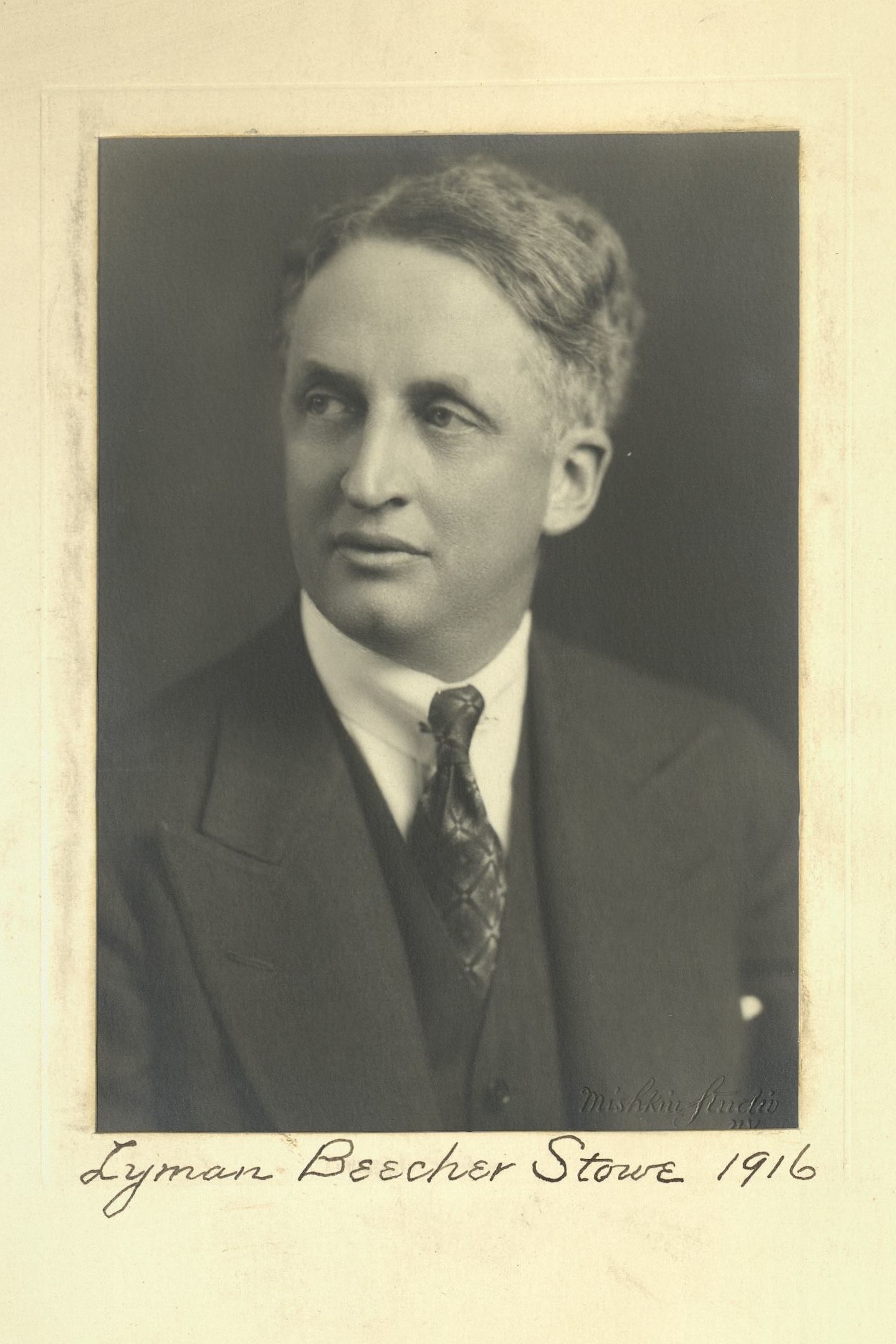Publicist
Centurion, 1916–1963
Born 22 December 1880 in Saco, Maine
Died 25 September 1963 in Fairfield, Connecticut
Buried Stockbridge Cemetery , Stockbridge, Massachusetts
, Stockbridge, Massachusetts
Proposed by Richard W. G. Welling and Frank H. Holden
Elected 2 December 1916 at age thirty-five
Archivist’s Note: Grandson of (nonmember) Harriet Beecher Stowe
Seconder of:
Century Memorial
Lyman Beecher Stowe was a certain type of renaissance man who could only have existed in the early part of the twentieth century. Born in 1880, the grandson of Harriet Beecher Stowe, he was a member of Harvard University’s Class of 1904, along with Franklin D. Roosevelt. A handsome and charming man of letters with a dedication to public service, Lyman worked as an editor, author, and lecturer as well as being deeply involved in the Public Service Commission of New York, where he served as first deputy commissioner, secretary, and vice chairman. He also served as secretary of the Public Charities in the City of New York, where he had a home on Beekman Place, as well as a summer home in Lenox, Massachusetts.
Lyman wrote a biography of his famous grandmother, the author of Uncle Tom’s Cabin, and several other books including Booker T. Washington: Builder of a Civilization, but he didn’t stop there. In addition to being a well-published author and an editor for twelve years at Doubleday (then known as Doubleday, Page & Company), Lyman toured extensively on the lecture trail known as the Chautauqua Circuit. Authors, politicians, and religious leaders were the centerpiece of a full day of oratory, followed by a musical or theatrical presentation in the evening. Lyman toured extensively as a lecturer, not only on the Chautauqua Circuit but also in Canada and the British Isles.
Though born in the nineteenth century, he was clearly a man of the twentieth, as he hosted a nationwide radio series, “Great Americans of the Past,” as well as having guest appearances on many other radio programs. Lyman was a consummate example of what is called today a “literary citizen.” He was a member of PEN International, president of the Authors Club of New York City (which existed from 1882 to 1973), and a council member of the Authors League of America (now the Authors Guild). A photo from 1916, the year he was elected to the Century, shows a handsome man with a thoughtful expression. At that time Lyman was serving in the army at Plattsburgh Camp as a private in the Ninth Coast Artillery, New York State Guard. He never served in Europe during the First World War, but as his stated objective on a résumé dated August 1942, he writes: “To serve my country for the duration of the war by writing or speaking or both, by helping to mobilize the youth of pre-military service age or to serve in any other way in which my education and experience could be of use; if only to free a younger man for more active service.” To be of use is a noble objective in any era, and Lyman Beecher Stowe was that and much more.
He died at the age of eighty-two, and was buried in the Stockbridge Cemetery.
Rebecca Chace
2019 Century Association Yearbook

